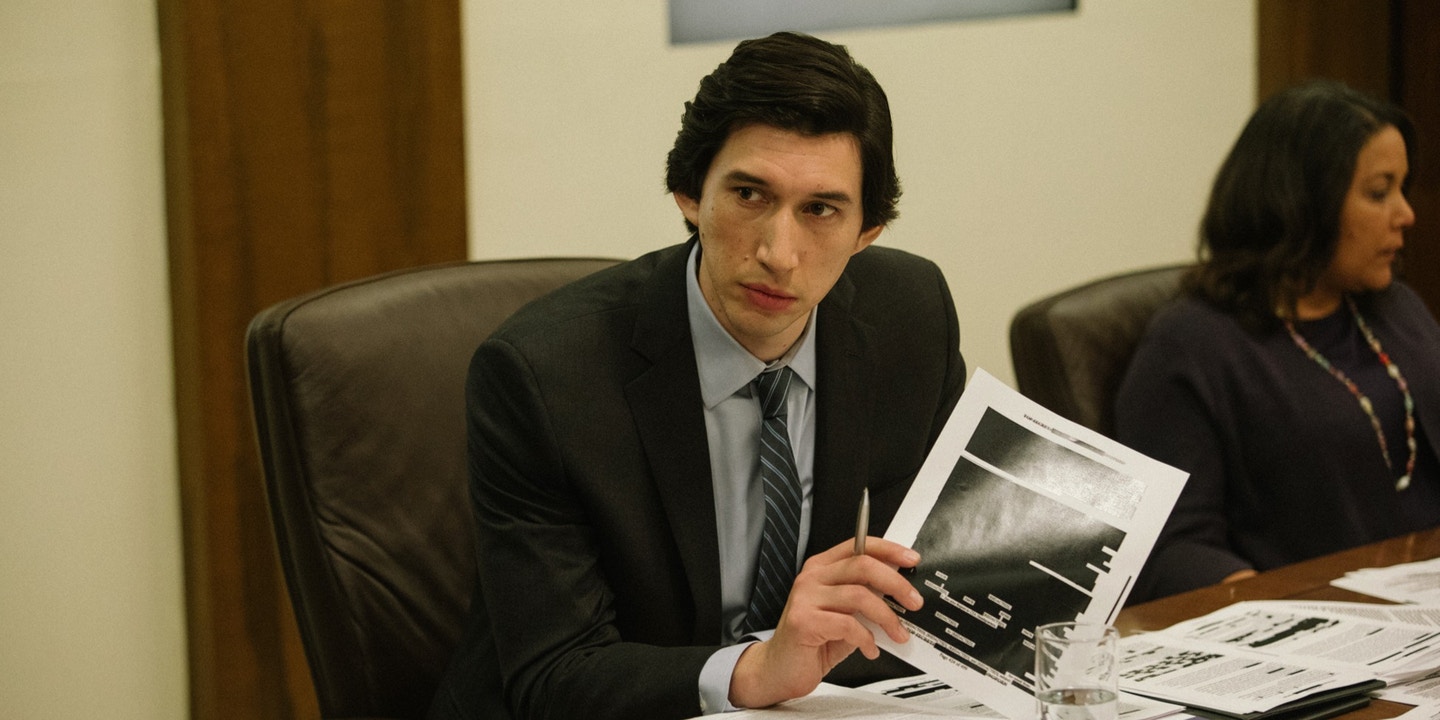GamesRadar+ Verdict
“You did well!” Bening tells Driver. Writer/director Burns deserves the same praise, and more besides.
Why you can trust GamesRadar+
Thanks in part to Zero Dark Thirty, the “enhanced interrogation techniques” used by the Central Intelligence Agency during the so-called War On Terror have acquired a ghoulish notoriety. What people are less aware of, even now, is how staggeringly ineffective sleep deprivation, waterboarding and the like actually were when it came to delivering actionable intelligence – the Holy Grail that was used to justify such methods in the first place
It took Senate staffer Daniel Jones seven years to compile the 6,700-page report that brought this and other failings to light – a laborious process unpicked by writer/director Scott Z. Burns (whose script credits include The Bourne Ultimatum and No Time To Die) in a talky yet engrossing drama intentionally reminiscent of All The President’s Men.
Tasked by Senator Dianne Feinstein (a coolly commanding Annette Bening) with leaving no stone unturned, Jones – infused here with simmering indignation by a driven Adam Driver – systematically details the brutalities inflicted on all of the Agency’s 119 detainees. Having assembled his torture dossier, though, Jones faces another uphill struggle to get it published. As Matthew Rhys’ reporter ruefully observes, “they sent you off to build a boat they had no intention of sailing.”
As vessels go, The Report is one so overloaded with names, dates, flashbacks and acronyms it’s a wonder it stays afloat. That it does should be attributed not just to the dogged conviction Driver exudes as its righteous hero but also to the film’s unshakeable belief that the ugly truth will ultimately out. Burns’ film is not an easy watch, not least when it depicts what took place in Langley’s infamous “black sites”. Like the harrowing data that inspired it, though, it defies redaction.
Neil Smith is a freelance film critic who has written for several publications, including Total Film. His bylines can be found at the BBC, Film 4 Independent, Uncut Magazine, SFX, Heat Magazine, Popcorn, and more.



